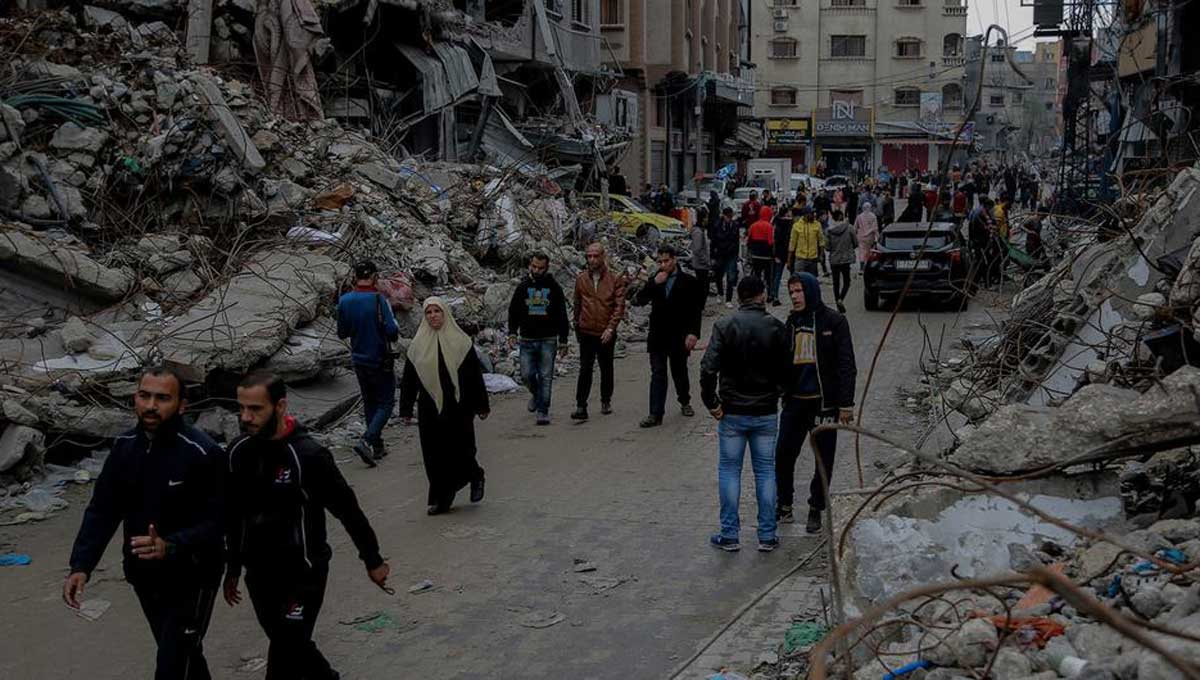“There is one solution to help address all these issues. We need an immediate humanitarian ceasefire,” he stressed.
Release hostages
He recalled the 7 October terror attacks by Hamas and other militants on Israeli civilians and the taking of hostages, demanding their immediate and unconditional release.
He further called for a thorough investigation and prosecution of allegations of sexual violence committed by Palestinian militants.
Commenting on the Israeli forces’ actions in the Gaza Strip, Guterres noted that the “onslaught” had resulted in “wholesale destruction” and an unprecedented rate of civilian killings during his tenure as Secretary-General.
“Nothing can justify the collective punishment of the Palestinian people. The humanitarian situation in Gaza is beyond words. Nowhere and no one is safe.”
Aid workers doing their best
According to the UN agency assisting Palestine refugees (UNRWA), 1.9 million Gazans – 85 per cent of the enclave’s population – have been displaced, some multiple times. As per Gaza’s Ministry of Health, over 23,700 Palestinians have been killed and some 60,000 more injured.
The crisis has also claimed the lives of 152 UN staff members – the largest single loss of life in the history of the Organization.
“Aid workers, under enormous pressure and with no safety guarantees, are doing their best to deliver inside Gaza,” the UN chief said.
‘Obstacles to aid are clear’
Mr. Guterres outlined clear obstacles hindering aid into Gaza, identified not only by the UN but also by officials globally who have witnessed the situation.
He emphasized that effective humanitarian aid delivery is impossible under the heavy, widespread, and unrelenting bombardment, citing significant hurdles at the enclave’s border.
Vital materials, including life-saving medical equipment and parts which are critical for the repair of water facilities and infrastructure, have been rejected with little or no explanation, disrupting the flow of critical supplies and the resumption of basic services.
“And when one item is denied, the time-consuming approval process starts again from scratch for the entire cargo,” Mr. Guterres added, noting other obstacles including denials of access, unsafe routes and frequent telecommunications blackouts.
‘We need basic conditions’
Stressing that the UN’s efforts to increase aid, Mr. Guterres called on the parties to respect international humanitarian law, “respect and protect civilians, and ensure their essential needs are met.”
There must be an immediate and massive increase in the commercial supply of essential goods, he added, noting also that necessities should also be available in markets to the entire population.
Cauldron of tensions ‘boiling over’
The Secretary-General also warned of rising tensions in the wider Middle East.
“Tensions are sky-high in the Red Sea and beyond – and may soon be impossible to contain,” he said, voicing concerns that exchanges of fire across the Blue Line – the demarcation separating Israeli and Lebanese armies – risks triggering a broader escalation between the two nations and profoundly affecting regional stability.
Expressing that he is “profoundly worried” by what is unfolding, the UN chief stressed that it is his “duty” to convey a simple and direct message to all sides:
“Stop playing with fire across the Blue Line, de-escalate, and bring hostilities to an end in accordance with Security Council Resolution 1701.”
‘Tamp down the flames’
Only a ceasefire can “tamp down the flames of wider war”, because the longer it continues the greater the risk of escalation and miscalculation.
“We cannot see in Lebanon what we are seeing in Gaza”, he concluded “and we cannot allow what has been happening in Gaza to continue.”
